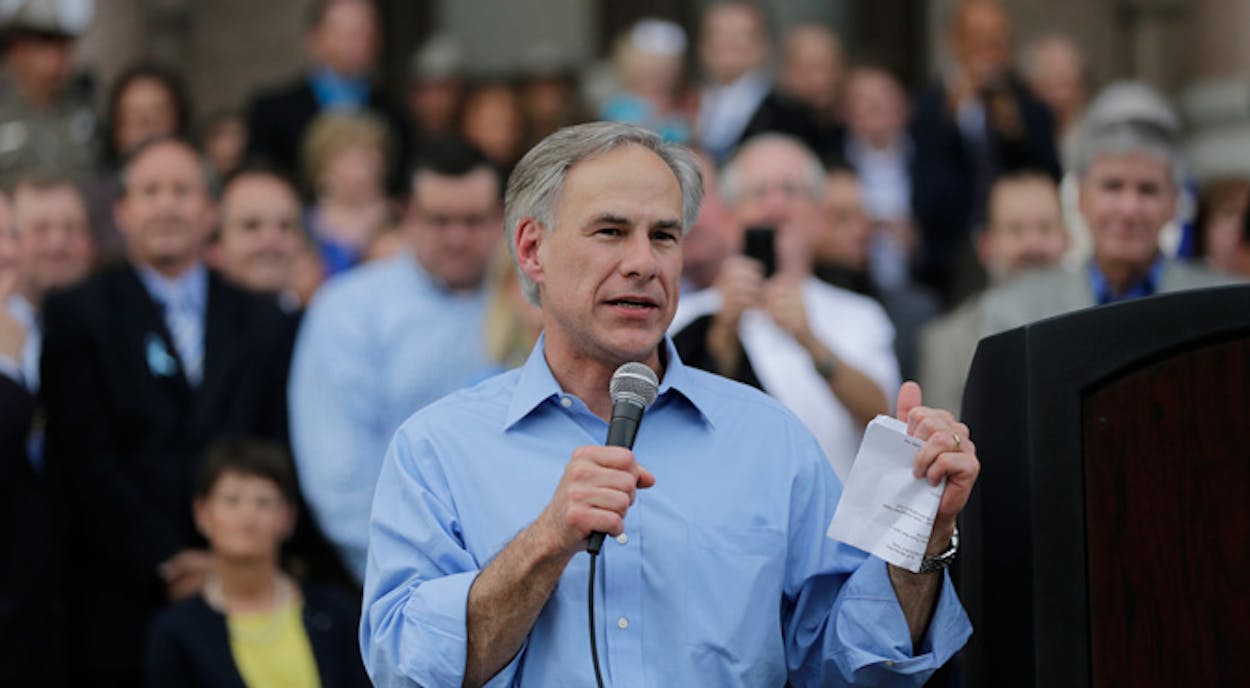This morning Governor Greg Abbott sent a letter to Barack Obama saying that following Friday’s terrorist attacks in Paris, for which ISIS quickly took credit, Texas will not accept any refugees from Syria. In Abbott’s assessment, such resettlement constitutes a potential security risk:
The FBI director testified to Congress that the federal government does not have the background information that is necessary to effectively conduct proper security checks on Syrian nationals. … The threat posed to Texas is very real. ISIS claimed credit last May when two terrorist gunmen launched an attack in Garland, Texas.
About a dozen other Republican governors have taken the same stance. So have most of the Republicans running for president, though Jeb Bush and Ted Cruz added that if the United States must continue with its plans for Syrian refugee resettlement—Obama has said that the country will accept 10,000 of the more than four million Syrians who have been displaced since its civil war began in 2011—we should restrict our welcome to the Christian Syrians.
Needless to say these developments have been accompanied by a fair amount of malicious rhetoric, with Republican leaders alleging that Obama doesn’t care about the safety of American citizens, and Democrats countering that Republicans are being heartless and bigoted. Setting all that aside, the issue is not entirely polarized along party lines: Democratic governors in New Hampshire and Montana have also said that they do not want Syrian refugees resettled in their states. Nor can all the skeptics be fairly accused of brazen Islamophobia. A number of Republicans, including Joe Straus, Nikki Haley, and Marco Rubio, have indicated that they share the concern Abbott specified, over whether refugees from Syria are being adequately vetted. This may not be an insuperable concern but to assume that it’s motivated by prejudice would be unwarranted.
At the same time, the governors who are drawing the line are being unrealistic. While states may have the right to decline to accept refugees on the basis of nationality—there’s some debate about that point—no state can ban interstate travel. Nor can any one expect that closing the country’s doors to all Syrian refugees will be sufficient to preclude all terrorism. The attack Abbott mentions in his letter illustrates both points: the two shooters were apparently inspired by ISIS, but neither was from Syria; they lived in Phoenix.
And it’s worth noting that in Texas, the shooters were thwarted. Having arrived in Garland with ambitious plans for carnage they wounded one person before being shot and killed by police. Many Americans, evidently, are alarmed by the idea of Syrian refugees being resettled here. If the president proceeds as planned, maybe it’s Abbott who should reconsider, if not for humanitarian concerns, then for the safety of Texas’s fellow states.







